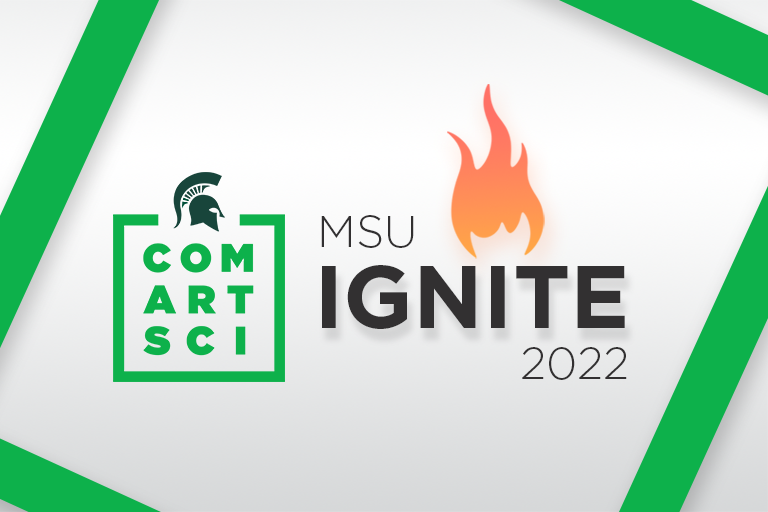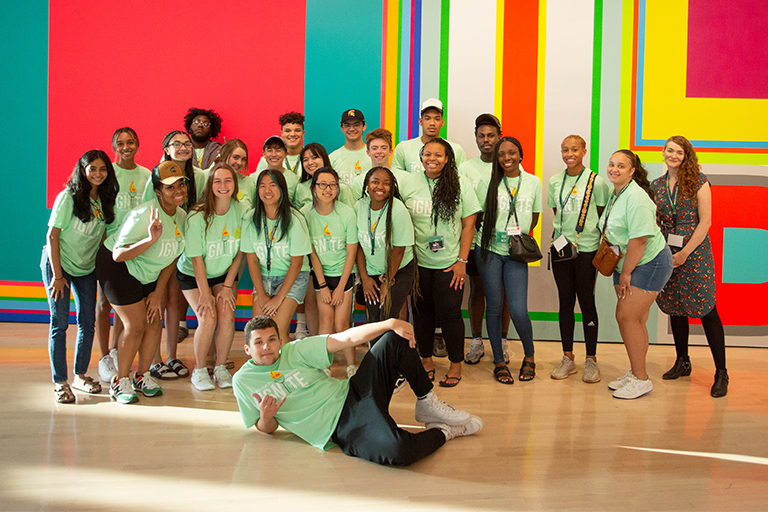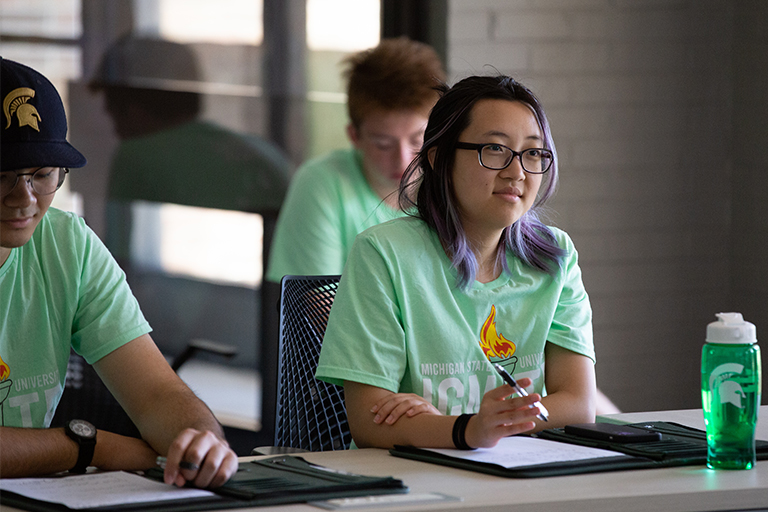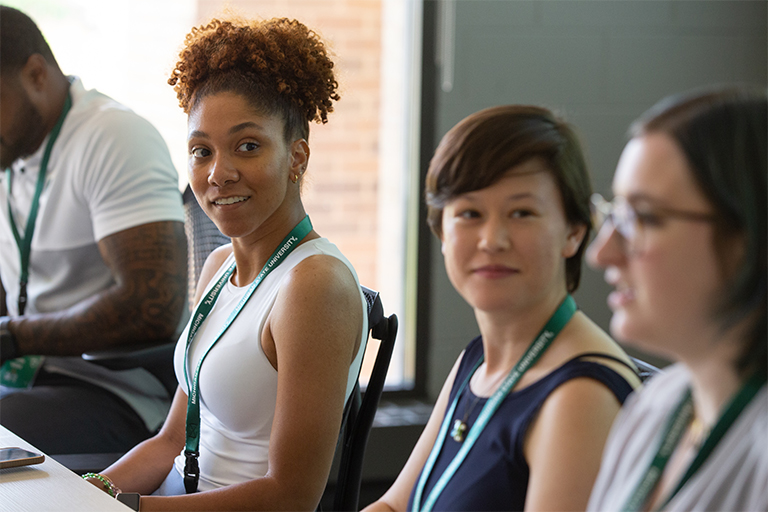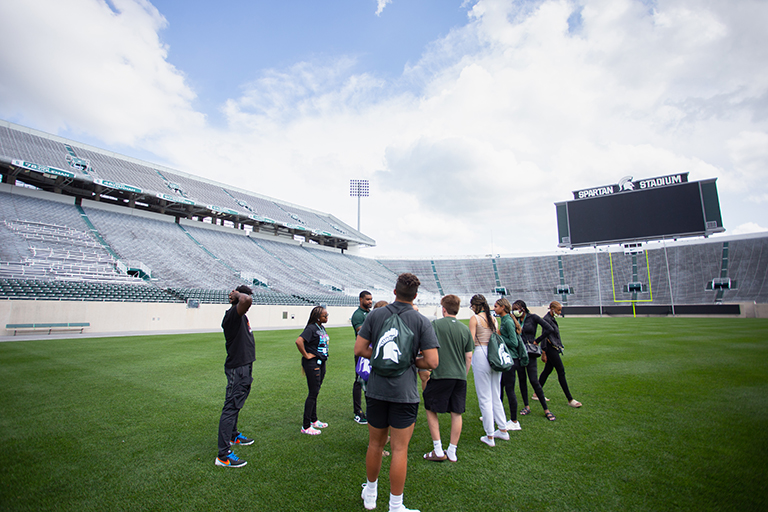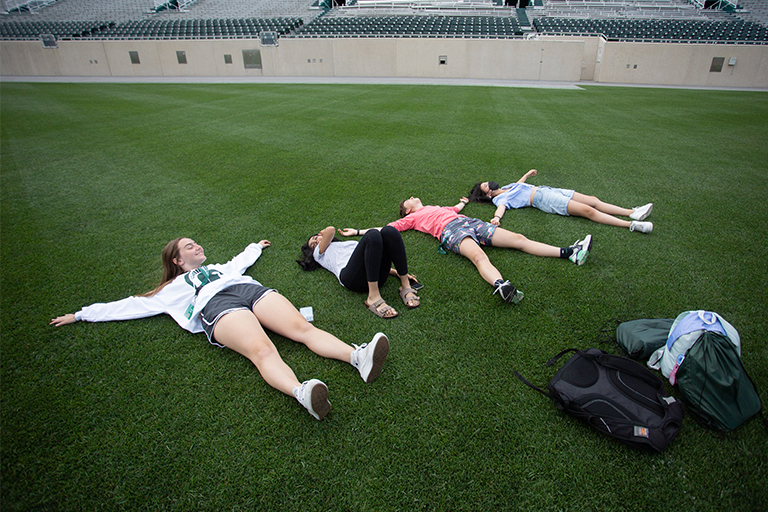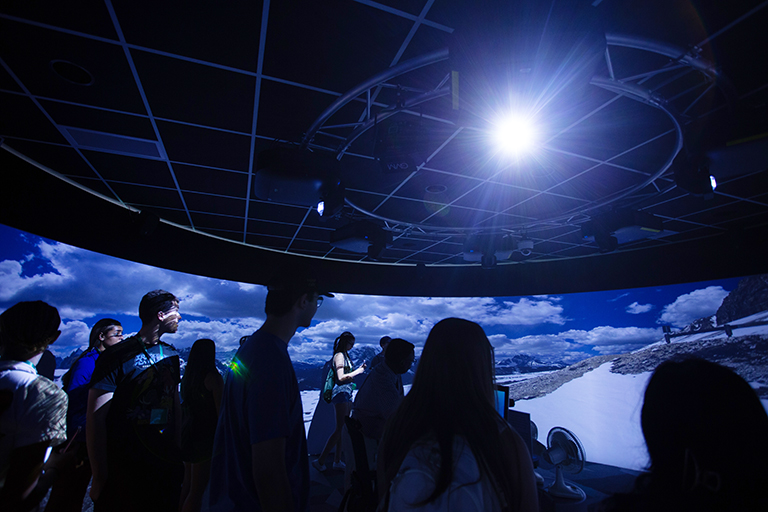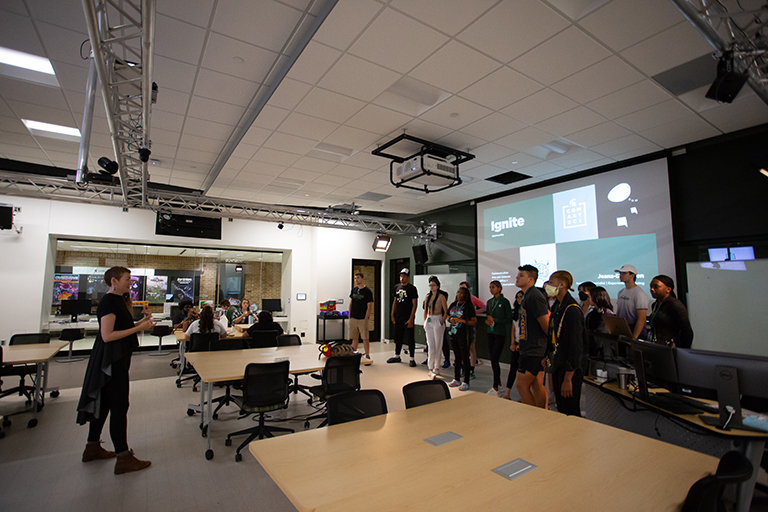ComArtSci welcomed its second group of incoming college students for the residential bridge program, Ignite, designed to help students from underrepresented communities transition from high school to a Big Ten university.
Igniting the flame
Conceptualized in early 2020, the Ignite program officially launched July 2021 with its first group of twelve students — profoundly impacting the students, faculty and staff alike.
For 2022, the goal was to offer even more opportunities to explore all academic programs within the college to a larger cohort of students.
“To achieve an efficient bridge program to scale, it is wise to do gradual increases just so that you can conceptualize what it will look like to incorporate faculty and staff in the program, and then to be able to provide the same quality of experience,” said the program’s director, Lauren Gaines McKenzie. “I think us going from 12 to 17 was a really good opportunity for us to experience what it would look like as we continue to expand over the next couple of years.”
“It was great,” McKenzie added. “The students were just really bright and engaging. They had so many questions — in terms of what Michigan State has to offer, what the college has to offer, and were really curious about how the environment of being in college is going to be a good fit for them.”
Fortunately, the program is backed enthusiastically by ComArtSci faculty and staff. “The faculty were really supportive throughout the year, asking for ways that they could support Ignite,” said Jada Flowers, Ignite’s lead program coordinator. She recalled inviting faculty to dine with the cohort during their lunch break, in addition to scheduled sessions, which was met with keen interest. “This year, every day for lunch [the students] were meeting new people,” she said.
Interacting with the college’s faculty and staff in both formal and informal settings offered incoming students the chance to ask a variety of burning questions — including things like, what exactly is a dean?
“I think that’s a breath of fresh air for someone to ask — at least for Dean David, he always welcomes that kind of question,” said McKenzie. She stressed the value in providing spaces for interactions with college leadership. “They become less intimidating, and they get a chance to really ask the things that they're curious about,” McKenzie said.
Faculty had questions, too. “They were asking things like, ‘What are you most excited or nervous about entering college? How did you become interested in your major and MSU? What is something new or shocking that you learned this week?'" said Flowers. “We’re very appreciative of their support.”
Transitioning to college
For many first-year students, the transition to college is underscored by pressure to have a career goal and a plan for the next four years. Programs like Ignite can help create community and alleviate some of that pressure. For both Flowers and McKenzie, it was important to normalize the “not knowing” and nurture a sense of belonging.
“College is a coming of age, so we want to make them feel okay about learning who they are as a means to figure out what their path is,” said McKenzie.
Connecting with the personal stories of former Ignite students (who staffed this year’s program), as well as ComArtSci alumni, faculty, staff and leadership, is a key part of creating that sense of belonging. “They were able to hear about their experiences and their journey,” said Flowers. “To see them as human, as people who have made mistakes and people who have figured it out along the way … that was a really important takeaway.”
This year, the group stayed on campus in Owen Hall, and participated in daily activities like skills workshops and creative projects. Each day also introduced key information for student success, including presentations from resource and service units across campus, one-on-one advising, building tours and so much more.
“They definitely had a jam-packed week, full of networking with other people, resource building, sharing about themselves, connecting with each other, making friends and just learning the overall campus,” said Flowers.
Continuing the tradition set last summer, the cohort ended their week with a final presentation of the creative projects worked on throughout the week.
Learn more about the Ignite Program
By Jessica Mussell
